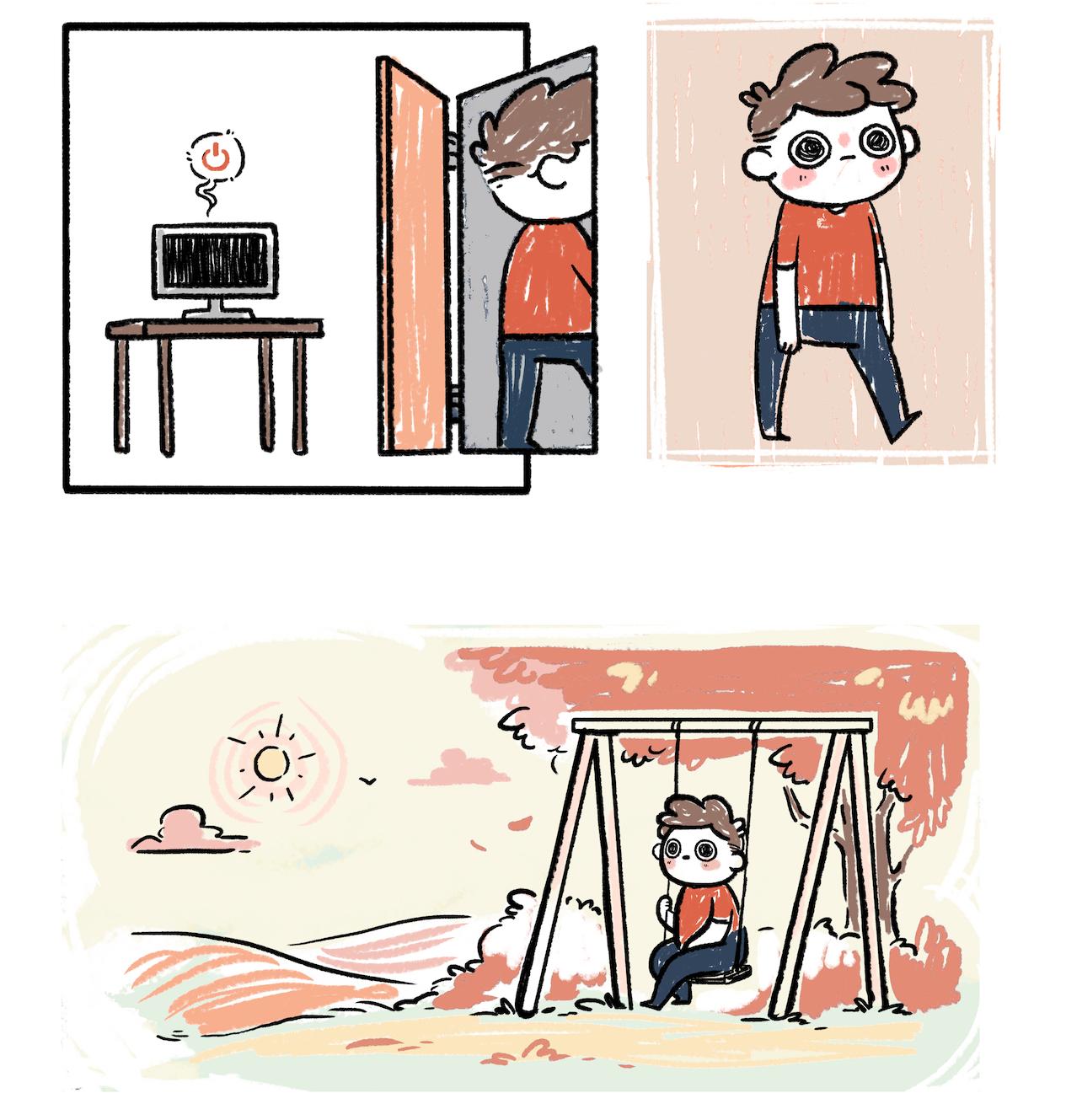Making quieter technology
Posted onTechnology constantly calls for my attention, like a needy child. Attention is engagement and engagement is profit. Thus the best minds of our generation are busy grabbing my attention by increasingly coercive means.
This is a post about how I fought back and got technology to just shut up. It’s regularly updated.
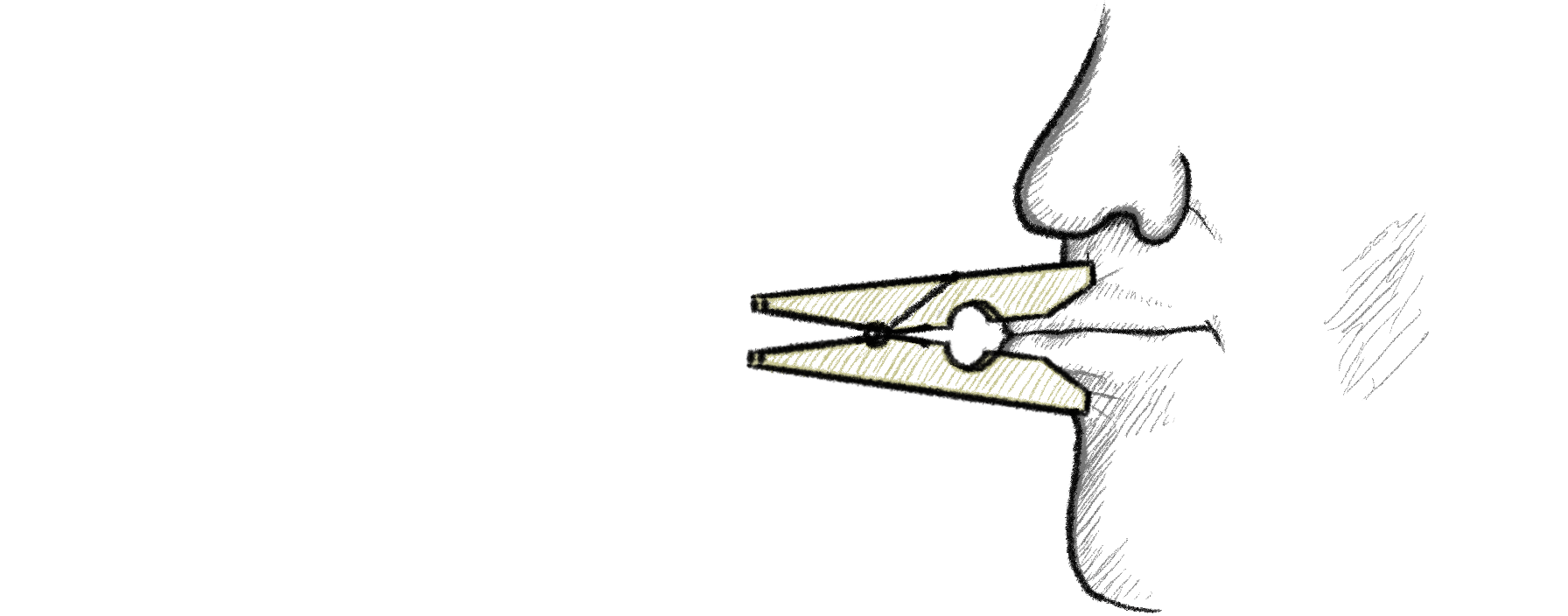
What’s wrong?
I want to use technology on my own terms, for my own ends. I want calm technology that respects the boundaries that I set for it, that respects my time, my attention, my privacy and above all my consent.
I don’t want to get sidetracked by addictive technology when I mean to sit down and do work. I want the computer to go back in its box when I’m done with it - like any other tool - so that I can do other things.
“A person’s primary task should not be computing, but being human.”
Silencing technology, bit by bit
Since a few years, I have had a zero tolerance policy on nagging technology. Instead of tolerating the same annoyances for years, I have been aggressively silencing them.
I did not throw my smartphone in a lake to retire to the mountains. I just excised the cancerous parts of technology and preserved the good ones.
Web browsing
I don’t tolerate the unfiltered web anymore. An ad blocker removes ads, cookie banners, newsletter prompts, and anything else that gets between me and my task.
I use uBlock Origin with the “annoyances” blocklists enabled. I have also added dozens of custom rules to remove feeds and other distractions.
uBlacklist removes spammy websites from Google search results. I use it to hide Pinterest and Quora, but also low-quality high-ranking websites like Forbes and MakeUseOf.
I increasingly rely on ChatGPT to get answers without sifting through pages of ad-infested blogspam. For certain queries, it’s unreasonably effective.
Notifications
I turned off all notifications on my phone, except for phone calls, instant messages and bank transactions. Nothing else gets through; not even email. Few things require my immediate attention.
“Technology should require the smallest possible amount of attention. Communicate information without taking the user out of their environment or task. […] The periphery is informing without overburdening.”
Most of the time, my phone is on Do Not Disturb, so I get no notifications at all. I check WhatsApp every once in a while, and if I forget, it’s because I am not available. We used to be unavailable, and it was fine.
In some cases, notifications are good. If my website goes down or some automated system fails, I want to be notified. Computers should monitor things so that I don’t have to.
At times, I feel like I spend most of my waking hours answering emails or doing the dishes. I have to squeeze everything else in.
I have gradually turned off all email notifications. At first I only had notifications on my laptop, then only during office hours, then not at all. I check emails when I have time, usually every few hours throughout the day. Checking emails has become a deliberate activity instead of a distraction.
I don’t get many emails anymore. I unsubscribe from unwanted emails as soon as I get them. I create filters to block the unwanted emails that slip through.
Now, I mostly get emails that were written by a human and addressed to me personally. However, even those can become a burden. I run a website about German bureaucracy, and I get a lot of reader mail. Those questions require careful consideration and measured responses. Since 2025, I have started re-routing them to better-qualified organisations.
Social media
I only keep a social media presence for my business. I have scrubbed my personal profiles clean with Redact and made them private. All notifications are turned off. I do not follow anyone, so all my feeds are empty. It’s a write-only medium.
This had a minimal impact on my social life. My friends were either quiet or silenced by the algorithm. Facebook was hiding my own mother’s posts from me. I was already missing out. It’s only difficult to follow artists and venues that only announce events on Instagram.
Some of these platforms perceive my lack of engagement as an affront. They pepper my feed and notifications with “suggested content” and “things you may like” in a desperate bid for my attention. I remove them with my ad blocker, or simply redirect the front page to my notifications.
News and feeds
There were feeds on every website I used, on every new tab I opened, on my phone’s home screen, and in my operating system’s task bar. They were very distracting, so I got rid of them.
Then I stopped drinking from the fire hose of current events. The current muddles the veracity and the importance of things. I prefer a sip from the puddle a little away from the chaos, where the ripples settled and I can see below the surface.
So I switched to long-form articles. After the race against time subsides, the quality of the reporting gets markedly better. It’s less important to be first, and more important to be right.
I also maintain a “things I don’t understand” list. I pluck items from it once in a while, and queue up a few articles about them. They’re nice bite-sized chunks of entertainment.
I use Pocket to queue articles and read them without distractions. It’s okay, but not great. I read on a completely silenced iPad. It’s disconnected from everything - a glorified e-book reader.
This has almost completely replaced scrolling in bed and at the breakfast table. My phone stays muted on my desk until I’ve had coffee.
I read more than ever in my life, and it’s now a deliberate act, not an anxiety-inducing impulse. I have learned a lot more from those sources than from following the news cycle.
Apps
Apps have repeatedly violated my trust, so I rarely use them. I prefer websites, because they have limited access to my device. They are subject to my ad blocker, and they stop running when I close the tab. They cannot pry their way to the centre of my attention.
I still use reddit, but a lot less than before.
First, I uninstalled the mobile app. The mobile website is unbearable, so I lost the urge to visit it.
Then I whittled down the list of subreddits I follow until it was down to two subreddits. When those began to annoy me, I unfollowed them too. My reddit front page - The Front Page of the Internet - is now empty.
I only use old.reddit.com. The old website is simple, faster and quieter than the redesign. It feels less like a dopamine casino, and more like a place where one seeks information. I enforce my choice with the Old Reddit Redirect extension. I added some uBlock rules to hide the remaining annoyances.
Another small tweak I have made was to hide the pagination buttons. I only get 25 posts, no more. It was unreasonably effective in curbing mindless browsing.
This is the default Reddit experience:
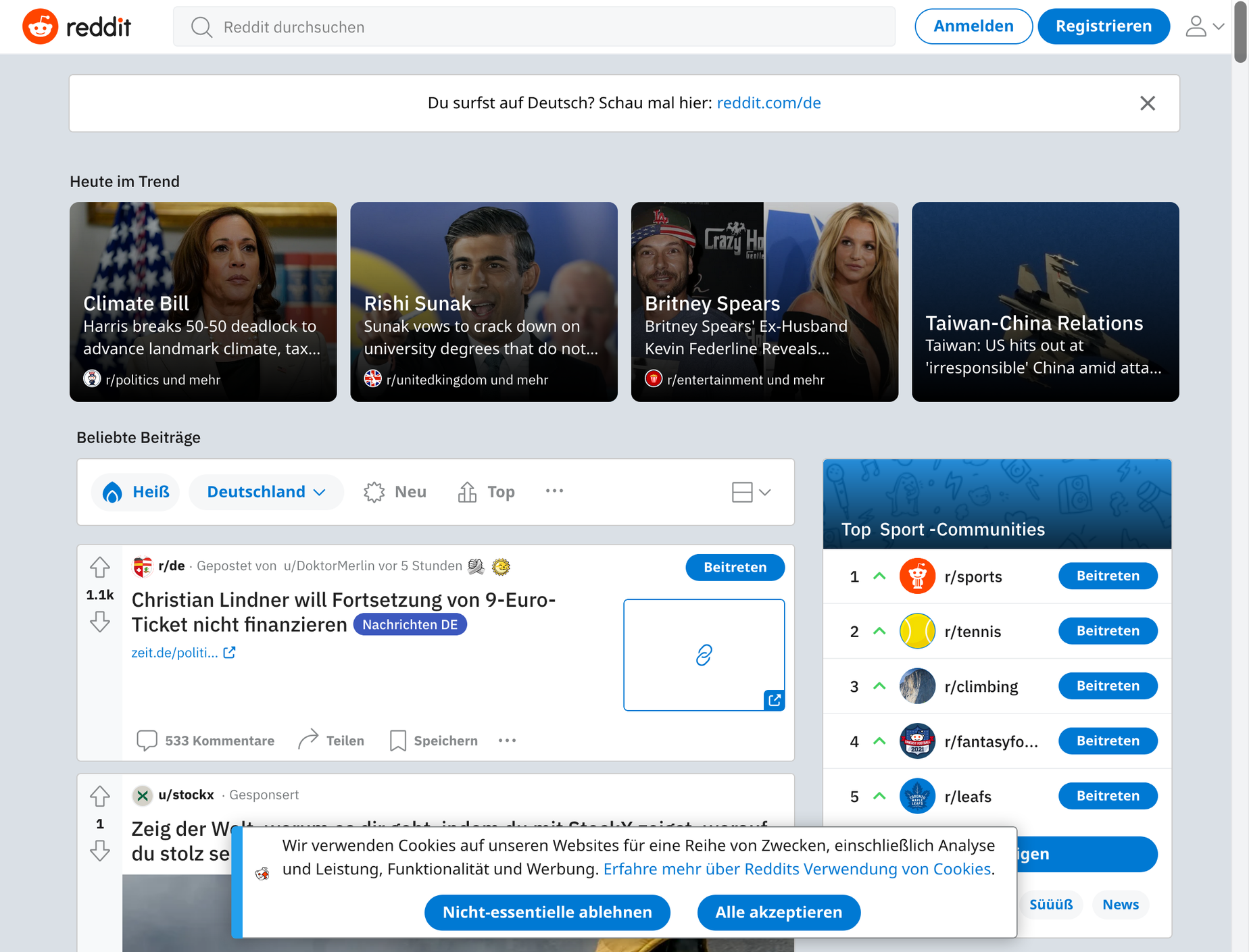
This is mine:
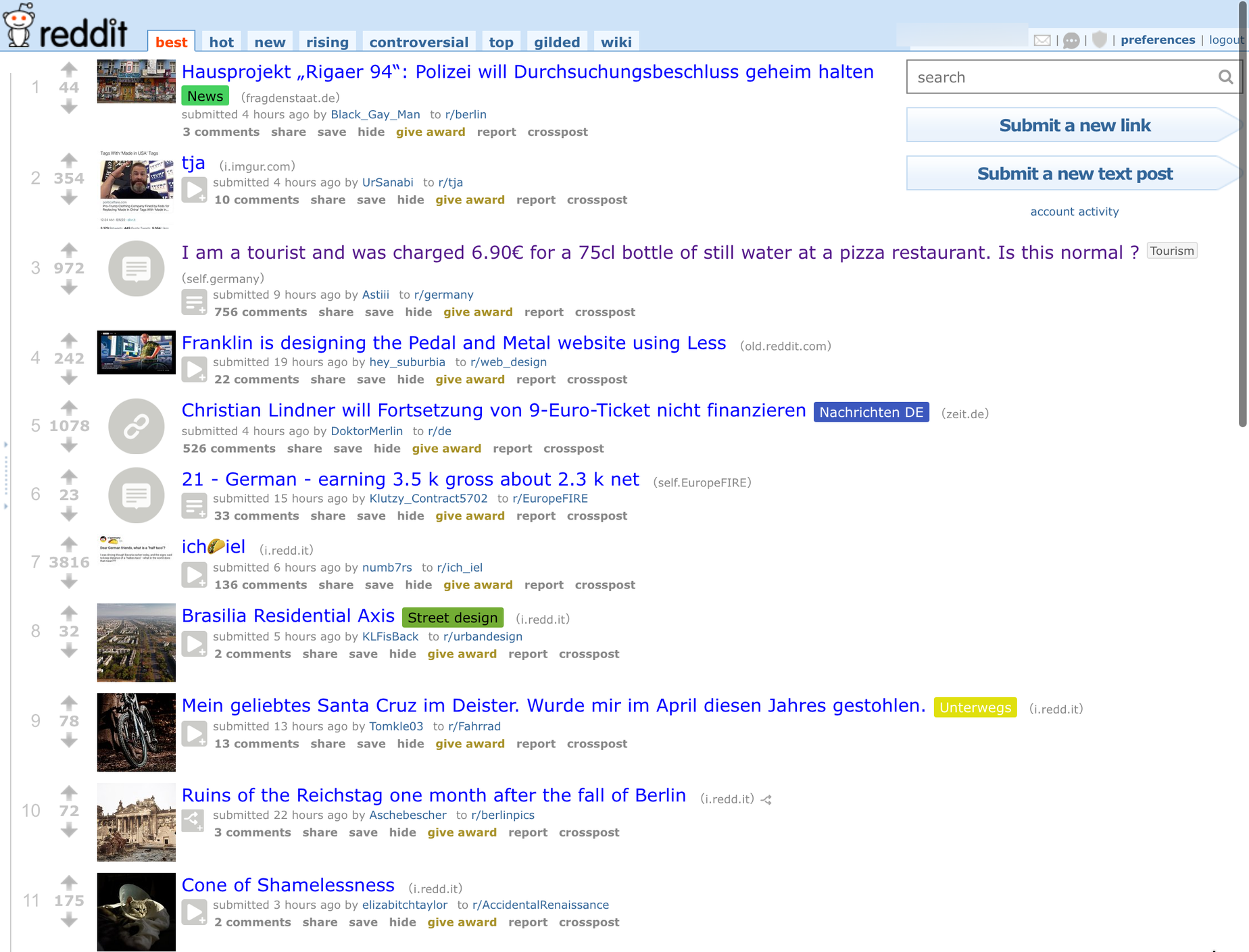
I have made two more tweaks that greatly improved my Reddit experience.
First, I redirect /r/all to my notifications. I used the Redirector extension for that. By now it’s just an endless stream of outrage about American politics. I just get silence.
Second, I hid the “next page” button. My reddit experience is now manually navigating to /r/curatedtumblr, looking at today’s 25 posts, then doing something else.
YouTube
YouTube went from recommending videos I want to watch to videos it wants me to watch. In 2019, it replaced related videos with recommended videos. In 2021, it started shoving Shorts down my throat. In 2022, it started putting recommended videos in search. Give it a few years, and YouTube will give me as much agency as cable television.
uBlock Origin removes ads and makes YouTube bearable. The Unhook extension keeps the experience tightly focused. Now, I only see videos from people I follow. I also like this extension that fills the page with just the video, nothing else.
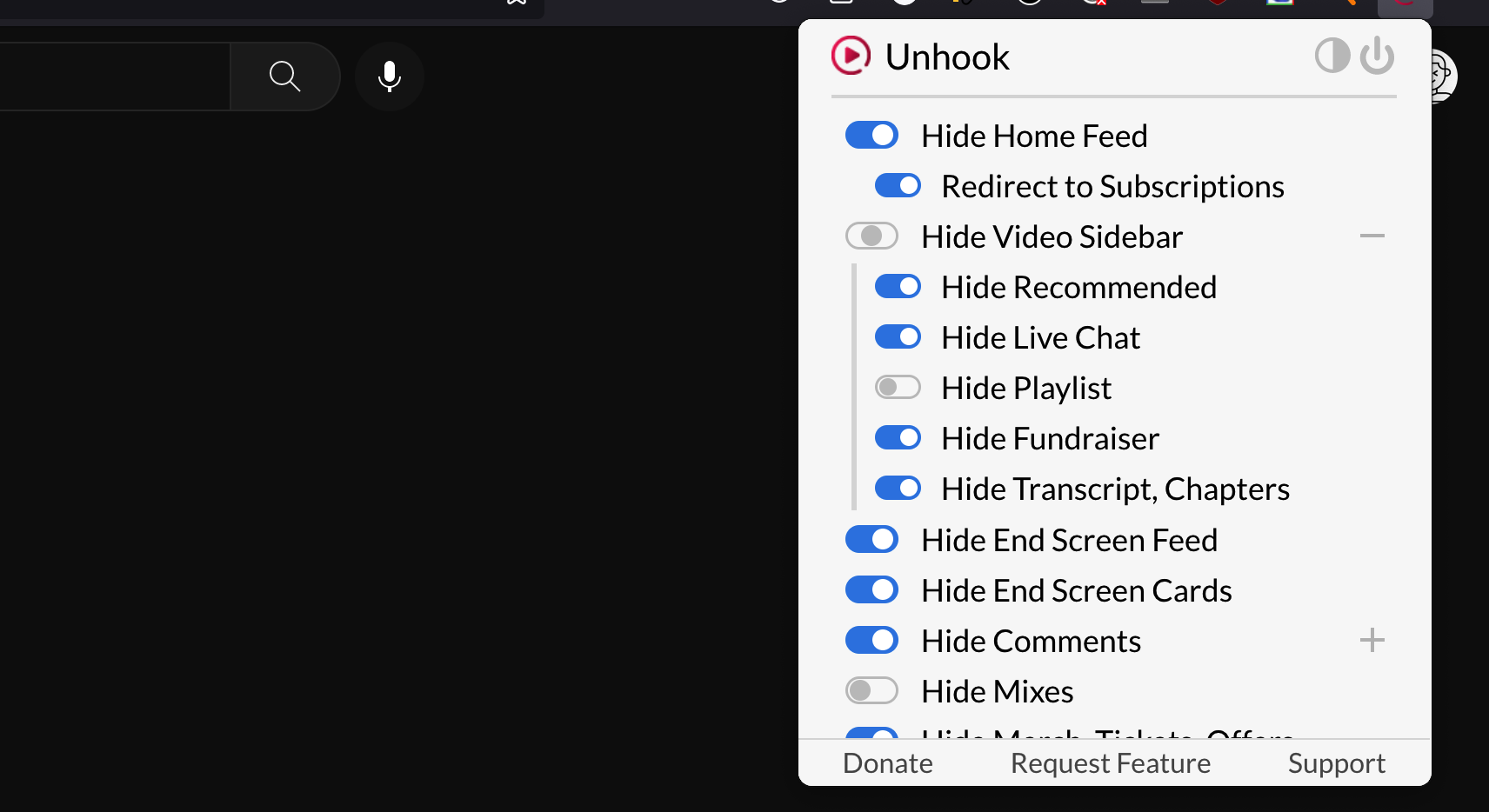
Every other website
I use uBlock Origin to block a lot more than ads. I hide practically all suggested content feeds, and most notification badges.
My own websites
I design my own websites to be calm technology. I tend to forget that the unfiltered web is a lot louder than what I experience. To me, a calm website is just normal.
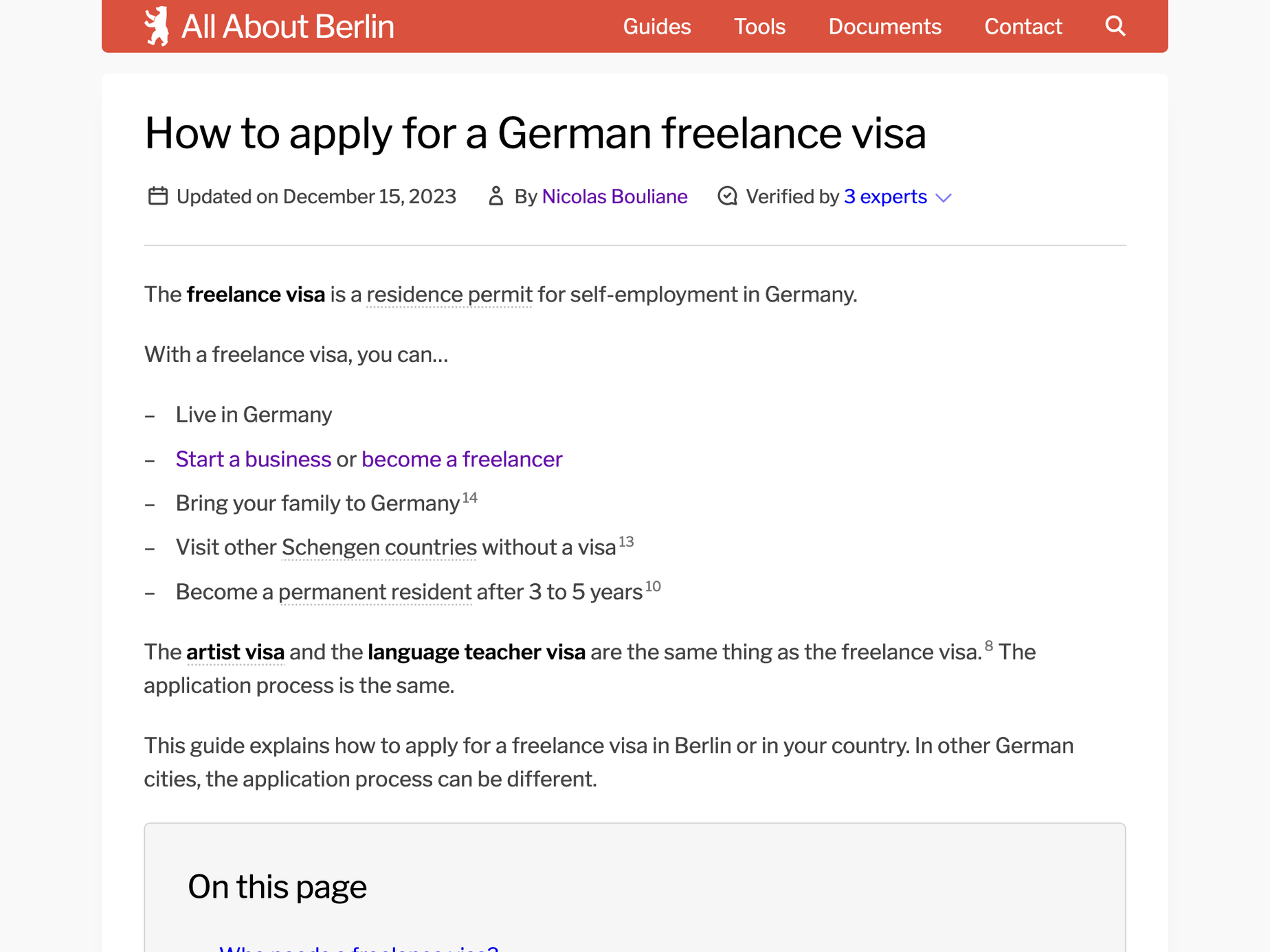
I removed comments from the websites I run, because I don’t want to deal with comment moderation and spam. Instead, I invite people to email me. Emails are more manageable, and feel more personal.
I design the websites themselves to run forever with minimal maintenance. They are simple static websites with few moving parts. I have paid for years of hosting in advance, and set up automatic payments just in case. Everything is behind Cloudflare for extra redundancy. If something goes wrong, Better Uptime notifies me. So far, nothing went wrong.
The tech I build
Nowadays, I only write code for myself and I don’t get paid for it. I have less patience for maintenance; I just want things to work. A person’s primary task should not be computing, but being human.
These days, I delete more code than I write. My software gets simpler and easier to maintain. I pare complex systems down to small scripts with few dependencies.
An app can be a home-cooked meal. Software does not need to be massively scalable and suitable for every use case. It’s fine to write simple Python scripts with hard-coded logic.
My own behaviour
I leave my phone out of the bedroom. When I go to bed, I leave it on silent mode on my desk.
Instead of getting smacked with raw social media first thing in the morning, I read a book or articles I have queued in Instapaper. The iPad I read on is disconnected from the cloud and social media. It’s a distraction-free device.
I used to go straight to my desk - still in my underwear - to continue something that started on my phone in bed. Now I have coffee and breakfast on the balcony, then catch up with the world. I don’t have the discipline to do this every morning, but I’m getting darn good at it.
I also post a lot less online. The internet got much angrier during the pandemic, and I mellowed out as well. I found that the best response to quibblers and boors is indifference. When the discussion gets tedious, I shrug and move on. Rude emails go straight to the trash.
“A strange game. The only winning move is not to play.”
Result
The original draft of this article had the desperate tone of an alcoholic pouring his liquor down the kitchen drain. I was losing sleep over internet drama. I couldn’t fully check out. A few years later, things are a lot better.
It’s all quieter.
Did all this effort unlock superhuman productivity? No, but it helped. I spend less time on the computer. I pull out my phone less. I don’t get sidetracked as much. I am blissfully unaware of the latest internet drama, and certainly not embroiled in any of it. I have more time to read, garden, and ride my bicycle.
I don’t read as much as I would like to. I still seek cheap entertainment at the end of a long day. I still reach for my phone to escape from an awkward situation.
It’s an iterative and incremental process. I slowly get better at it, and I update this post every few months to remember how much progress I have made.
The computer is a tool again, and now it’s going back in its box.
